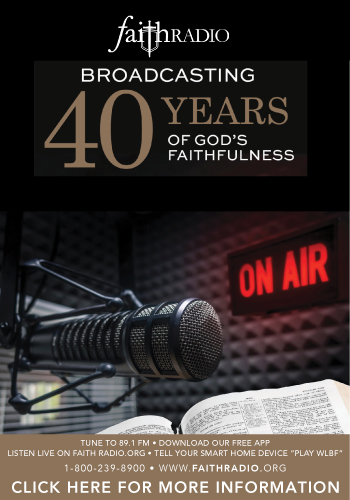Recently, some astonishing archaeological discoveries have lent credence to the pages of the Scriptures and provided evidence of the authority of Scripture.
I would say that we regularly hear, see, or read of discoveries, in a variety of scientific areas, including archaeology, where there are conclusions that can be drawn that affirm Scripture.
Perhaps you’re familiar with the account in John chapter 9 of how a blind man, at Jesus’ instruction, went into the Pool of Siloam and was healed of his blindness.
According to Focus on the Family’s Daily Citizen news site, actual steps of the pool have been recently uncovered. An article notes:
The pool’s exact location was a mystery until 2004, when archeologists first made the discovery of the site. Digging has been a slow process, but the revelation of the actual steps – which have been covered for thousands of years – marks a turning point in the project.
“Theologically, it affirms Scripture,” said the Reverend Johnnie Moore, president of the Congress of Christian Leaders. “It affirms Scripture, and politically, it affirms Israel’s unquestionable and unrivaled link to Jerusalem. Some discoveries are theoretical. This one is undeniable. It is proof of the story of the Bible and its people, Israel.”
Another recent archaeological discovery on which The Daily Citizen reported, citing Smithsonian Magazine, is relevant to the early Church; the Daily Citizen states that “archeologists have unearthed four Roman swords in an Israeli cave near the Dead Sea. Each between 24 and 26 inches long, it’s believed they were used in a Jewish uprising against the Romans in the second century.”
A third discovery was made at what could be the site of the city of Sodom, which was destroyed by God for its sinfulness. The Daily Citizen also reported:
Earlier this summer, Steven Collins, Dean of the College of Archeology at Trinity Southwest University, discussed how pottery that he and his team dug up at a site in modern-day Jordan, added credence to the theory the area was the biblical city of Sodom.
Collins told popular author Joel Rosenberg the material had been impacted by “flash heat” – which would match up to the biblical account of God raining “down burning sulfur on Sodom and Gomorrah” (Gen. 19:24).
Also, there was the discovery of human skeletons, which bore the signs of having been scorched and severed.
The writer of the article, Paul Batura of Focus on the Family, related:
Christians don’t rely on physical proof or archeological evidence to firm up their faith. After all, it was Jesus who said, “Blessed are those who have not seen and yet have believed” (John 20:29). But it’s always affirming and encouraging when the material nevertheless matches up with our deeply held religious convictions.
These discoveries are also a good reminder for us to be patient and never panic when scientists suggest that evidence is either lacking or inconsistent with our faith. Hold on. Just wait. Science will always eventually catch up with the Bible.
Batura reminds us that our faith is not based on what we see, but it is apparent that discoveries can certainly reinforce what we believe and can send a message to a skeptical world of the work of God around us. These archaeological discoveries reflect evidence that has been buried for years and years that is now coming to light. Interestingly, the word “uncovered” was used to describe the Pool of Siloam. There was an initial discovery, and further digging yielded greater discovery.
In Proverbs, the Bible addresses pursuing wisdom like the process of searching for silver. We can certainly be reminded that God has incredible discoveries for us contained within His Word. What He teaches us can be built upon so that we can grow deeper. We have to be willing to follow the thread, to walk down the path of knowing Him.
These discoveries also can help us to think about the evidence that we are leaving. We can consider if the seeds we are planting here and now will have any effect on this world in the years to come. We can even consider how our works here might be rewarded in eternity. The Bible teaches that our faithful service will be recognized when we stand before God.
The Bible’s real-life stories echo throughout the years and remind us about the faithfulness of God to and through His people. Even during times, such as that of the Judges, when a generation came that did not know the Lord, or the 400-year period after the last prophet, Malachi, a time of supposed silence, God was still working His plan, still fulfilling His Word to His people. He has given us a Savior and given us the Scripture, and we can be thankful for His great love for us.










